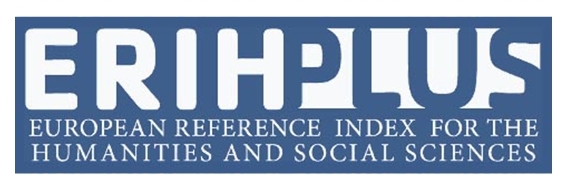The construction of intersexuality in Costa Rica
From discourse to practice
DOI:
https://doi.org/10.24215/24690333e017Keywords:
health, intersexual, Costa Rica, self-determinationAbstract
The authoress offers an approximation to the attention that the institutions who bring a health service to the people, who when they were born are determinate like intersex. In this case, there are exposing elements from the experience of Costa Rica in the topic; by the which the authoress investigates about the procedures done by Caja Costarricense del Seguro Social, a public institution engaged of the health’s service of the population, to open a debate about the procedures done and make visible the need to stimulate the exercise of self-determination by the intersex population.
Downloads
References
Butler, J. (2002). Cuerpos que importan. Sobre los límites materiales y discursivos del «sexo». Buenos Aires, Argentina: Paidós.
Cabral, M. y Benzur, G. (2005). Cuando digo intersex. Un diálogo introductorio a la intersexualidad. Cadernos pagu, (24), 283-304. Recuperado de http://www.scielo.br/pdf/cpa/n24/n24a13.pdf
Constitución Política República de Costa Rica (1949). Recuperado de http://pdba.georgetown.edu/Parties/CostaRica/Leyes/constitucion.pdf
Jiménez, N. (12 de marzo de 2013). Intervención de Natasha Jiménez: Mulabi-Espacio Latinoamericano de Sexualidades y Derechos. Audiencia temática especial sobre «Situación de los Derechos Humanos de las personas Intersex en las Américas». Washington D. C., Estados Unidos: 147º Período de Sesiones Ordinarias de la Comisión Interamericana de Derechos Humanos.
Ministerio de Salud de Costa Rica (2016). Norma Nacional para la Atención en Salud Libre de Estigma y Discriminación a Personas Lesbianas, Gais, Bisexuales, Trans, Intersex (LGBTI) y otros Hombres que tienen Sexo con Hombres (HSH). San José, Costa Rica. Recuperado de http://www.conasida.go.cr/index.php/biblioteca-de-archivos/126-norma-nacional-para-la-atencion-en-salud-libre-de-estigma-y-discriminacion-a-personas-lesbianas-gais-bisexuales-trans-intersex-lgbti-y-otros-hombres-que-tienen-sexo-con-hombres-hsh/file.
Montero, M. (2017). Intersexualidad en Costa Rica, la palabra invisible. Recuperado de http://www.ameliarueda.com/especiales/intersexualidad
MULABI | Espacio Latinoamericano de Sexualidades y Derechos (2014). Informe sobre Costa Rica – 19º Ronda del Examen Periódico Universal del Consejo de Derechos Humanos de la Organización de las Naciones Unidas. Recuperado de www.sexualrightsinitiative.com/wp-content/uploads/Costa-Rica-UPR-19.doc
Salgado Rodríguez, S. E. (2002). Niños, niñas y adolescentes frente a la investigación clínica. Medicina legal de Costa Rica, 19 (2), 125-133. Recuperado de http://www.scielo.sa.cr/scielo.php?pid=S1409-00152002000200014&script=sci_arttext
Suess, A. (2014). Cuestionamiento de dinámicas de patologización y exclusión discursiva desde perspectivas trans e intersex. Revista de Estudios Sociales, (49), 128-143. Bogotá, Colombia: Universidad de los Andes. Recuperado de http://revistas.uniandes.edu.co/doi/abs/10.7440/res49.2014.10
Downloads
Published
How to Cite
Issue
Section
License
Copyright (c) 2017 Melissa Bermúdez Otárola

This work is licensed under a Creative Commons Attribution-NonCommercial-ShareAlike 4.0 International License.
Current policy since 2019
The acceptance of an original by the journal implies the non-exclusive transfer of the patrimonial rights of the authors in favor of the publisher, who allows the reuse, after its edition (postprint), under a Creative Commons License Attribution-NonCommercial-ShareAlike 4.0 International.
According to these terms, the material can be shared (copy and redistribute in any medium or format) and adapted (remix, transform and create another work from the material), provided that a) the authorship and the original source of their publication (magazine and URL of the work) are cited, b) is not used for commercial purposes and c) the same terms of the license are maintained.
The assignment of non-exclusive rights implies that after postprint in Con X authors may publish their work in any language, media and format; in that case, it is requested that they signal that the material was originally published by this journal.
Assignment also entails the authors’ authorization for the work to be collected by SEDICI, the institutional repository of the Universidad Nacional de La Plata, and for it to be indexed in the databases that the publisher thinks appropriate for enhancing the visibility of the published work and its authors.
In addition, the journal encourages authors to submit their works to other institutional and thematic repositories after their publication in Con X, under the assumption that offering society unrestricted access to scientific and academic production contributes to a greater exchange in global knowledge.








.jpg)

.png)



.png)





















